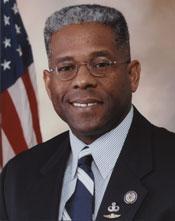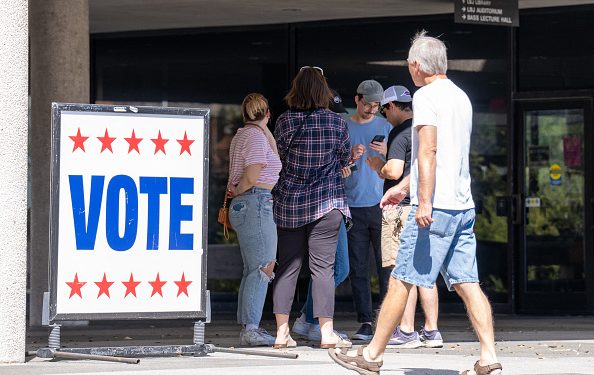As early voting nears its end in North Texas, nearly 1.2 million people have cast their ballots across Dallas, Collin, Denton, and Tarrant counties, according to the Texas Secretary of State. Early voting turnout in Dallas County saw a modest increase of 1.92% in the first week compared to 2020.
Some early voters in North Texas have voiced frustrations with in-person voting on social media, focusing especially on polling machine issues.
In a now-viral video, Tarrant County voter James Carpenter claimed his printed ballot marked a candidate he hadn’t chosen, which elections officials attributed to user error rather than machine malfunction.
“That particular polling machine should’ve been shut down and examined right then, but they continued to let people use it,” said Carpenter in the video.
Controversies Over Voting Machines in Dallas County
On the first day of voting in Dallas County, polling machines reportedly ran into a systemic glitch and caused severe delays in voter check-in. The incident revived criticisms of the county’s election readiness.
It’s not the first time Dallas County elections officials have met with scrutiny.
Earlier in October, Dallas County voting machines were audited three times after a routine equipment test in September produced mismatched results.

Although the Attorney General’s office and the Secretary of State found no issues, the Dallas County GOP Chairman, Allen West, published a statement citing a list of discrepancies and security risks with the tests.
He said, “our voting system equipment is opaque and presents grave risks to Dallas County voters and out Texas Constitutional Republic.”
Dallas lawyer and former Texas House of Representatives candidate Barry Wernick has also raised issues with the Dallas County Elections Department (DCED) on social media.
According to the Dallas Express and Wernick’s post on X on October 22, he filed a complaint to the Texas Secretary of State against the DCED.
He said the “sample ballot” provided on the DCED’s website was a downloadable and printable version without a “sample” watermark. It also had a colored signature of the Dallas Elections Administrator Heider Garcia.
Wernick stated in his X post, “[Because] there is no law against publishing an actual mail-in ballot, anyone with access to a registered voter’s legal first name and last name and the same voter’s birth date could easily and legally print out or digitally manipulate that voter’s ballot.”
He continued to explain, “Then that person could illegally and potentially surreptitiously inject it into the system thereby disenfranchising and diluting my vote, in this instance, and any other registered voter’s vote without getting caught.”
Wernick then called for the DCED to take down the sample ballot document, fearing it would allow loopholes for “bad actors” to interfere with the election via mail-in ballots.
Since Wernick’s post, the DCED has recently updated the website with watermarked “sample ballots” to replace the previous version.
Concerns Over Countywide Voting
After asking for a hand recount after losing the Republican primary in March to incumbent Rep. Morgan Meyer (R-University Park) by almost 500 votes, Wernick has been advocating for more transparency and accountability in elections. Although the results remained the same, the recount found a 15-vote difference.
“I’m not contesting. I went to the other side and said, ” ‘This is a great opportunity for us to actually do a semi-audit of our election system,(…) to find out if there are any flaws inherent in the system. And if there are, let’s expose them. Let’s fix them. Because if you won, to my opponent, then this is for you in November. This is to protect our elections and to make sure that there’s no nefarious goings on or no chicanery in the elections,'” said Wernick in an earlier interview with The Texas Insider.

Wernick said he had found irregularities with the countywide voting system during the recount process.
Countywide voting is when, according to the lawyer, “the election administrator doesn’t assign a voter to a specific precinct to vote at that polling location. So if you’re from precinct one, you’re not
voting at your polling location in your precinct or even combining precinct.”
He said that this program made it “impossible” to hand count and audit, as only computers and machines could process the countywide votes. Wernick added that countywide voting not only stressed the election software and machines but also violated voter privacy and ballot secrecy.
Despite the recent allegations and controversies, election officials said they had quickly fixed the problems addressed and the incidents were “isolated.” In an interview with WFAA, the Texas Secretary of State Jane Nelson confirmed that the 2024 election would be “the most secure” Texas’ ever had.
“With 18 million people hopefully casting their vote, there’s going to be a glitch somewhere. They may be rightfully concerned; we will address it,” said Nelson in the interview.
Larrison Manygoats and Marina Fatina contributed to this report.




